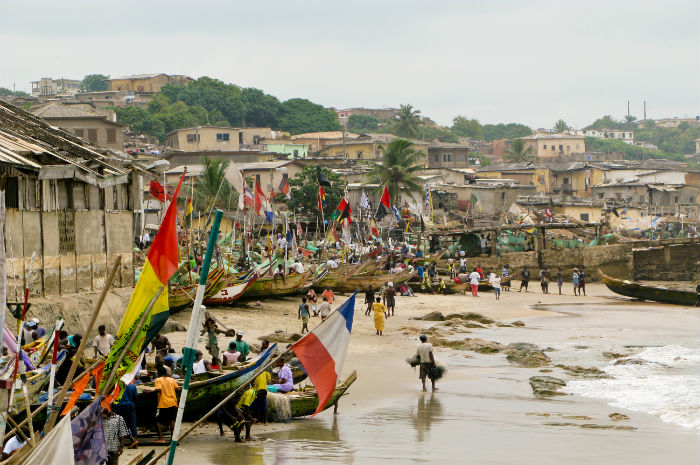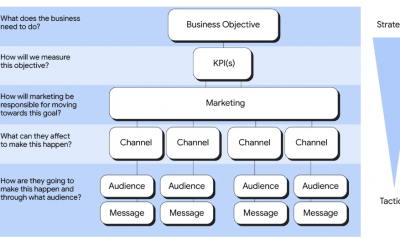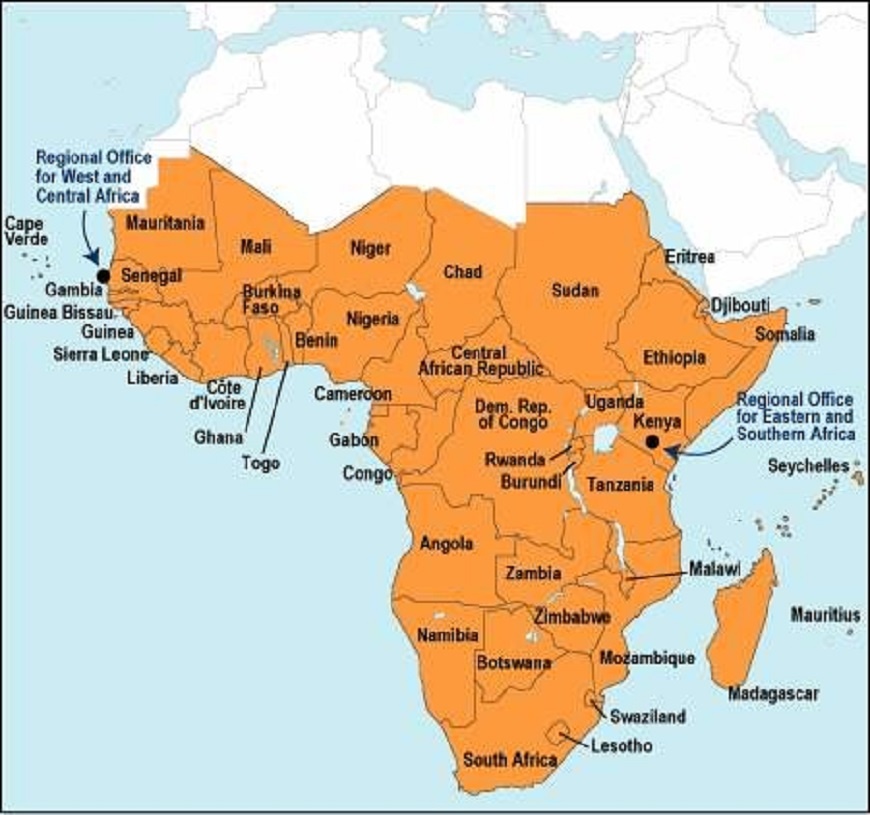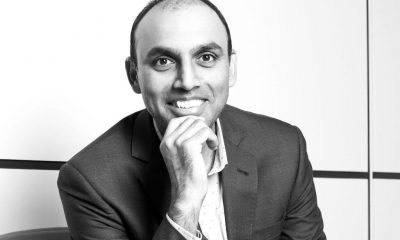Economy
Sub-Saharan Africa Yet to Return to Robust Growth Rates—Report

By Dipo Olowookere
Latest report from Nielsen Holdings Plc, a global performance management company providing a comprehensive understanding of what consumers Watch and Buy, has revealed that the Sub-Saharan Africa was yet to fully get back on its feet after going low in 2016.
Nielsen, in its 5th Nielsen Africa Prospects Indicator (APi) report, said the region was yet to uplift itself from the two-decade economic low reached last year, bringing a slight easing of pressure but certainly not a return to the robust growth rates previously experienced.
However, despite the turmoil and heavy constraints; it was emphasised that Africa’s ‘heavyweights’ namely Nigeria, Kenya and South Africa, cannot be ignored and remain a long-term priority for any business focused on Sub-Saharan Africa.
The latest report included a comparative ranking of eight African countries, drawn from multiple datasets, collected across the Macro Economic, Business, Consumer and Retail dimensions.
It was observed that manufacturers and retailers seeking to stay one step ahead in Africa’s complex markets needed to move beyond ‘business as usual’ – they simply cannot keep doing the same things and expecting a different result.
Commenting on the report, Nielsen Executive Director Thought Leadership Emerging Markets, Ailsa Wingfield, stated that, “No one size fits all and no total continent, country, city, consumer or channel approach is enough to ensure sustained success in Sub-Saharan Africa.
“Similarly, successful brands, advertising and activation in other developing markets do not provide the passport to growth in Africa’s complex markets and challenging climates.”
Challenging…but impossible to ignore
Considering this, it’s clear that the sub-continent’s two most significant economies, Nigeria and South Africa, are slowly turning around from recent declines to low levels of growth, however, the consolidated prospects for these two powerhouse economies continue to be subdued. Of the countries measured in Nielsen’s 5th Africa Prospects report, South Africa slips two positions to sixth place and Nigeria remains in eighth place.
South African consumers have expressed declining sentiment regarding their job prospects, personal finances and time to buy. With higher average GDP per capita – double that of Nigerians and Angolans and triple that of Kenyans – bigger in-store spend and an openness to new, innovative products, South Africa presents the strongest consumer prospects in SSA.
However, the reality is that a cautionary consumer mindset has led to more risk averse spending behaviour and a heightened focus on saving, especially in the areas of out of home eating, entertainment and fashion, followed by an acute awareness of price for consumer packaged goods. To counter this businesses have been drawn into more promotional activities, eroding brand equity and margins.
Kenya relinquishes top position due to fading macro-economic indicators and a declining business outlook amidst an unsettling election period. Economic growth slowed to 4.7% in the first quarter of 2017 brought about by drought and the credit slowdown. Rapidly rising inflation has driven food prices to five-year highs, which has plagued consumers and retail trading conditions. Consumers are less confident about their personal finances; their spare cash is limited, and their mindset remains cautionary with them opting to save rather than spend.
A continued missed opportunity
Cote d’Ivoire once again leads the APi overall ranking with strong macro-economic and retail prospects, but the country is dealing with deteriorating political stability and declining cocoa prices, which could lead to an economic deficit and pressure on household income, amplifying the already weaker consumer prospects.
Despite the country displaying strong indicators for growth, consumer prospects remain low. This is in part due to product fulfilment issues, with manufacturers failing to meet Ivorian consumers’ needs as they relate to a range of factors including: convenience, tradition, taste, ease of use, portability, scarcity and accessibility.
Cameroon comes into focus
Cameroon has risen to fourth position, is its highest rank to date. With a diversified natural resource base, rapid urbanisation and GDP per capita on par with Kenya, and higher than Uganda and Ethiopia, it is easy to understand its stronger consumer and retail prospects.
These are, however, offset by weaker macro-economic and business prospects. The economy is vulnerable to external impacts due to a reliance on commodities, and this, coupled with low investment in critical infrastructure, frequent power outages, and weak governance, has resulted in elevated costs of doing business. Cameroon has also been identified as one of the most challenging countries in the world to start a new business, limiting potential investors and preventing the economy from growing at its full potential.
Ghanaian Optimism
Ghana maintains fifth position on the APi, but this masks some of the ongoing improvement in the macro-economic, consumer and retail dynamics. It has also been rated as the best business prospect for successive periods. Economic advances in 2017, with growth rising to 6.6%, is spurred on by progress in the oil and non-oil sectors. Food inflation continues to decelerate easing the pressure on consumer wallets, resulting in an increasing number of Ghanaians spending more in store, more willing to try new things and positively influencing the previously weaker retail outlook.
Overall, the APi report shows that Africa continues to offer one of the greatest gifts of untapped growth, but requires bold strategies. Those invested or investing in Africa therefore need to reassess and implement in a more purposeful, precise and persistent manner in pursuit of consumer needs.
“Africa offers marketers one of the final destinations to develop and execute product, marketing and retail solutions from a clean slate perspective, which are differentiated, generate demand and deliver value yet there still seems to be a vacuum within these areas.
“On the plus side this points to significant potential for innovation and growth – what is required now is a steady investment by manufacturers and retailers into making these untapped opportunities work for them,” Wingfield further said.
With vast retail landscapes and widespread, diverse consumers it’s therefore all about precision over mass tactics in Africa coupled with exceptional product, marketing and retail innovation to capitalise on Africa’s prospects.
Economy
Moniepoint Research Shows Diminishing Role of Cash in Nightlife Payments

By Modupe Gbadeyanka
A new report released by Africa’s leading all-in-one financial ecosystem, Moniepoint Incorporated, has revealed that the use of cash for financial transactions is gradually dying due to security concerns.
The study, which looked into transaction data of over 27,000 clubs, bars, and lounges, showed that bank transfers dominated, followed closely by card payments, with cash actively discouraged. It was observed that transfers outpace card payments by nearly 2 million transactions during peak nighttime hours across its network.
In the research titled The Business of Community Nightlife in Nigeria, findings provided a rare, data-driven look into the country’s informal night economy.
While high-end Detty December venues grabbed headlines with daily revenues of N360 million and table prices reaching N1.2 million, Moniepoint’s study shifted the spotlight to the “community nightlife” where roadside bars, suya spots, and neighbourhood joints form the bedrock of social life for millions of Nigerians.
One of the study’s most operationally significant findings concerns the timing of spending. Nightlife in Nigeria runs late, but economically, the night is decided early.
Transaction volumes begin climbing sharply from 8 pm, peak before midnight, and then decline steadily even as venues remain full. By the time the night is at its longest, purchasing activity has already wound down.
However, for bar operators, this has clear practical implications – the most critical hours for staffing, stocking, vendor payment and cash flow management are the earliest hours of the day between midnight and 6 am.
The report further underscores the sector’s role in employment, noting that local bars typically expand their workforce by 30-50 per cent on peak nights. Conservative estimates suggest that at least 54,000 people are engaged in nightlife labour every night across Nigeria.
It was also observed that the most common transaction narrations from the data sourced – “food”, “pay”, “sent”, “pos”, “cash” – reflect the full breadth of nightlife spending: street food, club entry, lounge tabs, transport, and afterparties. Digital payments have gained huge traction in Nigeria’s social space.
While alcohol remains a key revenue driver, the data shows that food is the quiet stabiliser of Nigeria’s night economy, particularly in local and informal settings. In several neighbourhood venues, bottled water and meals outsell beer and spirits, especially early in the evening.
Lagos leads in sheer concentration of nightlife establishments, with 4,856 bars, clubs, and lounges on the Moniepoint network. FCT follows with 2,515, then Rivers (2,362), Delta (1,930), and Edo (1,574).
Katsina leads the country in nighttime food truck payment value, with vendors pulling in over N130 million in the last 12 months. Kwara State leads in transaction count. Nigeria’s nightlife economy is distributed, not overly elitist.
On the lending side, the report noted that a significant share of loan requests from bar and lounge operators is directed toward renovations, furniture, lighting, and sound systems, showing that investments are intended to attract and retain customers in a competitive sector where ambience plays a decisive role.
Commenting on the report, the chief executive of Moniepoint, Mr Tosin Eniolorunda, said, “Nigeria’s local bars and night-time operators are not peripheral to the economy; they are a critical part of its architecture. We see a substantial and sustained economic sector that employs hundreds of thousands of Nigerians every night and deserves the same attention we give to agriculture, healthcare, and retail.
“Our goal is to make sure every one of those businesses has the tools to grow. From giving credit to finance renovations and sound systems to providing same-day settlement that allows vendors to restock and with tools like Moniebook that power inventory management and reconciliation, Moniepoint is ensuring that this vital artery of the nation’s economy remains viable and empowering.”
Economy
CBN Reduces Interest Rate by 50 Basis Points to 26.50%

By Adedapo Adesanya
The Central Bank of Nigeria (CBN) has cut the interest rate by 50 basis points to 26.50 per cent from 27 per cent.
Nigeria’s apex bank announced this during its two-day 304th Monetary Policy Committee (MPC) meeting, which concluded on Tuesday in Abuja.
This comes after the country’s interest rate cooled in January to 15.10 per cent from 15.15 per cent, according to the National Bureau of Statistics (NBS), strengthening the case for a reduction.
The CBN Governor, Mr Yemi Cardoso, said all members of the MPC unanimously agreed upon the decision.
“The committee decided to reduce the monetary policy rate by 50 basis points to 26.50 per cent,” he said.
Mr Cardoso stated that the liquidity ratio was maintained at 30 per cent, and the standing facilities corridor was adjusted to +50 to -450 basis points around the monetary policy rate.
He said the committee retained the Cash Reserve Ratio (CRR) at 45 per cent for commercial banks and 16 per cent for merchant banks, while the 75 per cent CRR on non-TSA public sector deposits was equally maintained.
The CBN uses the MPR, which works as the benchmark interest rate, to manage inflation, macroeconomic stability, and liquidity.
Last November, the MPC retained the Monetary Policy Rate (MPR) at 27.00 per cent. The last time the apex bank cut interest rates was in September last year, to 27 per cent from 27.50 per cent after a series of easing in inflation.
Market analysts had argued for higher interest cuts due to results seen in the CBN’s inflation targeting framework. Meanwhile, some say the 50 basis points reduction will offer a temporary reprieve as inflation heads for a single-digit target in the coming months.
Economy
Grey to Cut Cross-Border Payment Costs with New USD Offering

By Adedapo Adesanya
A cross-border payments solutions company, Grey has expanded its business banking platform to include US Dollar corporate accounts, bulk international payments, and USDC stablecoin support, all integrated into a single system.
The company is positioning itself as a low-cost, faster alternative to traditional international banking, particularly for businesses in emerging markets as it enables companies to open US Dollar accounts, receive global payments, and send payouts to 170+ countries, including bulk transfers, within minutes.
Grey aims to solve common cross-border payment challenges, particularly the high transfer costs that often range between 6 and 7 per cent of transaction value, prolonged settlement cycles that can stretch across several days, and the limited access many businesses face when trying to open and operate foreign currency accounts. In addition, companies frequently contend with hidden intermediary fees and poor foreign exchange transparency, both of which undermine cost predictability and effective cash flow management.
By integrating USD business accounts and USDC stablecoin functionality into its platform, Grey enhances its value proposition around faster settlement, clearer pricing structures, improved cost efficiency, and broader global accessibility. The expanded capabilities enable businesses to manage international transactions with greater speed, transparency, and operational control.
“Businesses may operate without borders today, but access to reliable global banking remains uneven, particularly for companies in high-growth markets,” said Mr Idorenyin Obong, Co-founder and Chief Executive Officer of Grey. “We’re closing that gap and enabling businesses to move money faster, with greater transparency and control, wherever their clients or partners are based.”
“When payments are delayed, or costs are unpredictable, growth stalls,” added Mr Joseph Femi Aghedo, Chief Operating Officer and Co-founder of Grey. “Grey eliminates those friction points, giving businesses a faster, simpler way to manage payroll, supplier payments, and partner payouts across borders. Adding USD and stablecoin capabilities makes these benefits accessible to even more customers.”
Established in Africa in 2020, Grey has a presence in key markets, including the United States, the United Kingdom, and Europe, and has recently expanded its services and operations into Latin America and Southeast Asia.
Since its inception, the company has consistently enhanced its services to empower digital nomads worldwide, regardless of location. Grey’s offerings include multi-currency accounts, low-cost international money transfers, a virtual USD card, expense management tools, and robust security measures.
-

 Feature/OPED6 years ago
Feature/OPED6 years agoDavos was Different this year
-
Travel/Tourism10 years ago
Lagos Seals Western Lodge Hotel In Ikorodu
-

 Showbiz3 years ago
Showbiz3 years agoEstranged Lover Releases Videos of Empress Njamah Bathing
-

 Banking8 years ago
Banking8 years agoSort Codes of GTBank Branches in Nigeria
-

 Economy3 years ago
Economy3 years agoSubsidy Removal: CNG at N130 Per Litre Cheaper Than Petrol—IPMAN
-

 Banking3 years ago
Banking3 years agoSort Codes of UBA Branches in Nigeria
-

 Banking3 years ago
Banking3 years agoFirst Bank Announces Planned Downtime
-

 Sports3 years ago
Sports3 years agoHighest Paid Nigerian Footballer – How Much Do Nigerian Footballers Earn




















